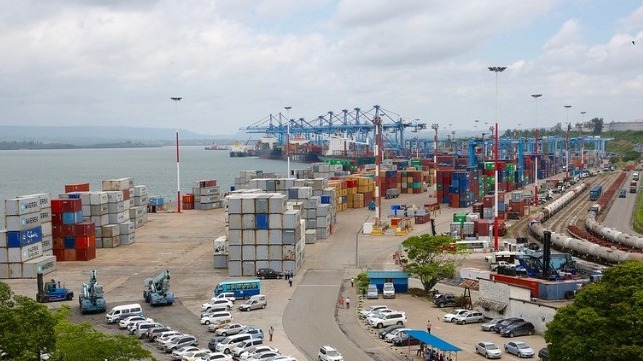UK-Kenya Trade Agreement May Threaten Regional Integration

The United Kingdom (UK) parliament has warned that the British government's new bilateral trade agreement with Kenya could undermine the East Africa Community (EAC) regional integration initiative.
A report by parliament's International Agreements Committee has raised concerns over the deal, finding that it will have disruptive political and economic impacts on the EAC trading bloc that encompasses Kenya, Tanzania, Uganda, Rwanda, Burundi and South Sudan. Consequently, the UK parliament has resolved to delay ratification of the agreement - initially scheduled for February 10 - for another three weeks to allow for a deeper scrutiny.
“Kenya’s divergence from the EAC’s common external tariff could have political and economic implications for the coherence of the EAC as a regional bloc,” concluded the committee.
It added that although deepening regional integration is one of the key objectives of the trade deal, there is a risk the agreement could serve to undermine regional integration, something that calls into question the UK’s government commitment to supporting regional integration and regional trade as part of its wider international development strategy.
The Economic Partnership Agreement between the UK and Kenya was signed in December last year and has been provisionally applied since January 1, pending the completion of full ratification.
The agreement focuses on facilitating trade in goods, providing Kenya with duty-free and quota-free access to the UK market. Kenya, in turn, commits to a phased liberalization on trade in goods, but retains tariffs for some products deemed sensitive domestically.
However, the decision by Kenya to negotiate unilaterally - despite being a member of the EAC - has rattled the community, particularly on the application of the customs union protocol. According to the EAC customs union, goods and services from the bloc do not attract duty while a common external tariff is applied to imports from countries outside of the EAC.
“The UK-Kenya agreement could undermine this arrangement, as Kenya would be applying a separate tariff regime to the UK,” noted the committee.
In line with the UK agreement, Kenya must eliminate customs duties for a substantial number of UK goods and progressively lower and eliminate duties for many others. This difference in tariffs applied to UK goods exported to Kenya, as opposed to the other EAC countries, could result in increased border checks and other barriers between Kenya and other EAC members.
Concerns that the UK is undermining EAC integration comes when intra-EAC trade has remained stunted, marginally increasing to $5.9 billion in value in 2018 from $5.7 billion in 2014. On average, EAC countries source six percent of their total imports from within the region and supply 20 percent of their total exports to the region.

that matters most
Get the latest maritime news delivered to your inbox daily.
Kenya is hoping to ride on the deal with the UK to grow its exports, which are largely agricultural produce. The country is the UK’s 73rd-largest trading partner, accounting for 0.1 percent of total UK trade. In 2019, trade in goods and services between the UK and Kenya was worth $1.9 billion.
The UK exports more goods to Kenya than it imports, with $534 million worth of exports, compared to $447 million of imports in 2019.
